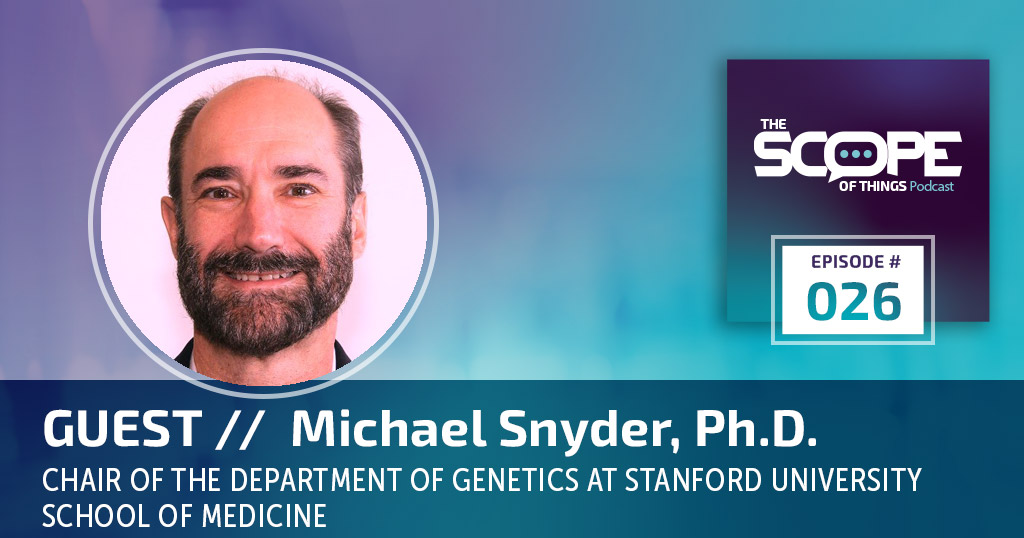Digital Twins, Care-For-All European Platform, and the Impact and Future of Wearables and Microsampling
May 7, 2024

In this episode of the Scope of Things, host Deborah Borfitz brings you the monthly breakdown on current events, such as tailoring medications to individual patients using digital twins, the use of a skin biopsy test to diagnose neurodegenerative diseases, and the launch of a European-wide platform promoting access to care for all. She also speaks with Michael Snyder, chair of the department of genetics at Stanford University School of Medicine and director of the Center of Genomics and Personalized Medicine at Stanford, about the growing adoption of wearables and home microsampling—and how this will dramatically change clinical trials and care. Snyder also delves into the “Amazon-ing” of healthcare and how he envisions the creation and future of personalized metrics and customized interventions and how they can improve trial outcomes.
Show Notes
News Roundup
Probabilistic approach to diagnosing cancer
- Story in Clinical Research News
Functional precision medicine
- Pediatric study in Nature Medicine
Cancer clinical trial access
- JAMA Oncology article on new recruitment approach
Endpoints in cancer screening trials
- Comparative study in JAMA
Rate of participation in cancer research
- Study in Journal of Clinical Oncology
Tailoring medications with digital twins
- Article in Genome Medicine
Skin biopsy test for neurodegenratve diseases
- Study in JAMA
European Patient Observatory
- Initiatives encourging innovation
Guest
Michael Snyder, chair of the department of genetics at Stanford University School of Medicine and director of Stanford’s Center of Genomics and Personalized Medicine; bio on the Snyder Lab
Michael Snyder, Ph.D., chair of the department of genetics at Stanford University School of Medicine and director of the Center of Genomics and Personalized Medicine at Stanford
As a pioneer of Precision Medicine, Dr Michael Snyder has invented many technologies enabling the 21st century of healthcare including systems biology, RNA sequencing, and protein chip. Dr Snyder has initiated the Big Data approach to healthcare through his work using omics to detect early stage disease, including wearables to detect infectious diseases like COVID-19, and at-home microsampling to measure hundreds of molecules from a single drop of blood. He is the first researcher to gather petabytes of data on individuals, which is 1 million - 1 trillion times more data than the average clinician collects. He as published over 800 papers and is one of the most cited scientists. In terms of commercial success, Mike has co-founded 17 companies (including 2 unicorns) with combined enterprise value of over $6 billion.







